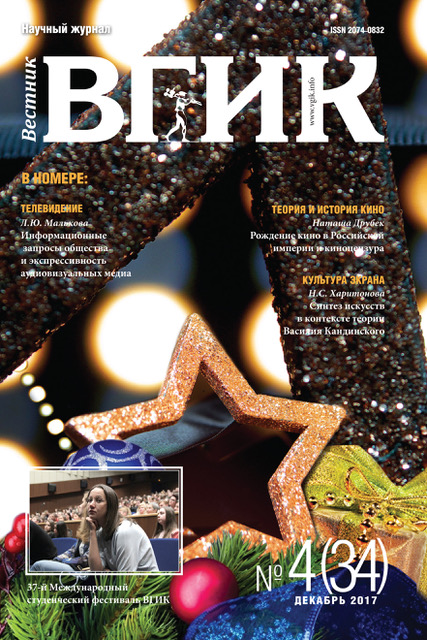Hearing and Speech Voice Expressiveness of the Actor
- Authors: Avtushenko I.A1
-
Affiliations:
- ВГИК
- Issue: Vol 9, No 4 (2017)
- Pages: 83-93
- Section: PERFORMANCE | ART OF PRESENTATION
- URL: https://journals.eco-vector.com/2074-0832/article/view/14619
- DOI: https://doi.org/10.17816/VGIK9483-93
- ID: 14619
Cite item
Full Text
Abstract
The article explores the process of auditory perception as part of scenic communication. The author offers two types of auditory perception existing independently, as the result of the structure of the human brain, and are expressed in terms of verbal and emotional ear. Using the verbal ear people recognize the content of the text, volume of speech, its melody, tempo, rhythm. The emotional ear allows one to understand the emotional context of a message: the subtext, the attitude of the speaker, his/her intentions. Emotional ear is divided into Active and Passive forms. The ability to correctly recognize the emotion is a passive form of Emotional ear. The ability to express feelings with one’s voice or with a musical instrument is determined by the active Emotional ear. In acting education, the concept of "emotional ear" is not used, but outstanding stage directors and theatre teachers speak in favour of the special auditory sensitivity and receptivity required by an actor. The ability to hear plays an important role in theatric action as it generates true intercommunication. When the partners on stage really listen and hear each other, their speech becomes vivid and intimate. Otherwise the act of speech may come to a mere mechanical declamation. How can one achieve the novelty of impression? It is gained by means of introducting new shades of intonation and pace connected with the partner's immediate feelings. All of them are tightly connected with on-the-spot decisions that the actor spontaneously takes on while performing. The actor needs an ability to reflect over the subtleties in interaction with one’s partners and to be on the same wavelength with them. The level of auditory sensitivity affects the expressiveness of speech. Variety of intonations, imagery and expressiveness of speech are associated with a wealth of experiences of the senses. In ordinary life an "insensitive" person lacking bright temperament speaks monotonously, without active and visible melodies. Intonational expressiveness of speech, both in life and on stage (or screen) is associated with emotional sensitivity. The ability to understand the partner's inner life and expressing the emotional intonation of the actor's speech is determined by the possession of the emotional ear which can and must be developed at Speech Technique classes.
About the authors
Irina A Avtushenko
ВГИК
Author for correspondence.
Email: avtushenko-irina@yandex.ru
PhD in Art, assistant professor, Scenic Speech, VGIK, member of the RF Theatre Union.
References
- Автушенко И.А. Развитие эмоционального слуха на уроках сценической речи. - М.: Гранит, 2014. - 142 с.
- Бахтин М.М. Эстетика словесного творчества. - М.: Искусство, 1986. - 445 с.
- Морозов В.П. Художественный тип личности: новые критерии в системе комплексного подхода в разработке проблемы // Художественный тип человека. Комплексные исследования. - М.: Московская государственная консерватория (университет) им. П.И. Чайковского, 1994. - С. 86-102.
- Морозов В.П. Невербальная коммуникация. - М.: ИП РАН, 2011. - 528 с.
- Пансо В. Труд и талант в творчестве актера. - М.: ВТО, 1972. - 270 с.
- Станиславский К.С. Моя жизнь в искусстве. - М.: Искусство, 1983. - 424 с.
- Товстоногов Г.А. Зеркало сцены: соч. в 2 т. Т. 1. - Л.: Искусство, 1980. - 311 с.
- Чехов М.А. Литературное наследие. Об искусстве актера: соч. в 2 т. Т. 2. - М.: Искусство, 1986. - 559 с.
- Хейфец Л.Е. Музыка в лифте. - М.: МИК, 2005. - 352 с.
Supplementary files








